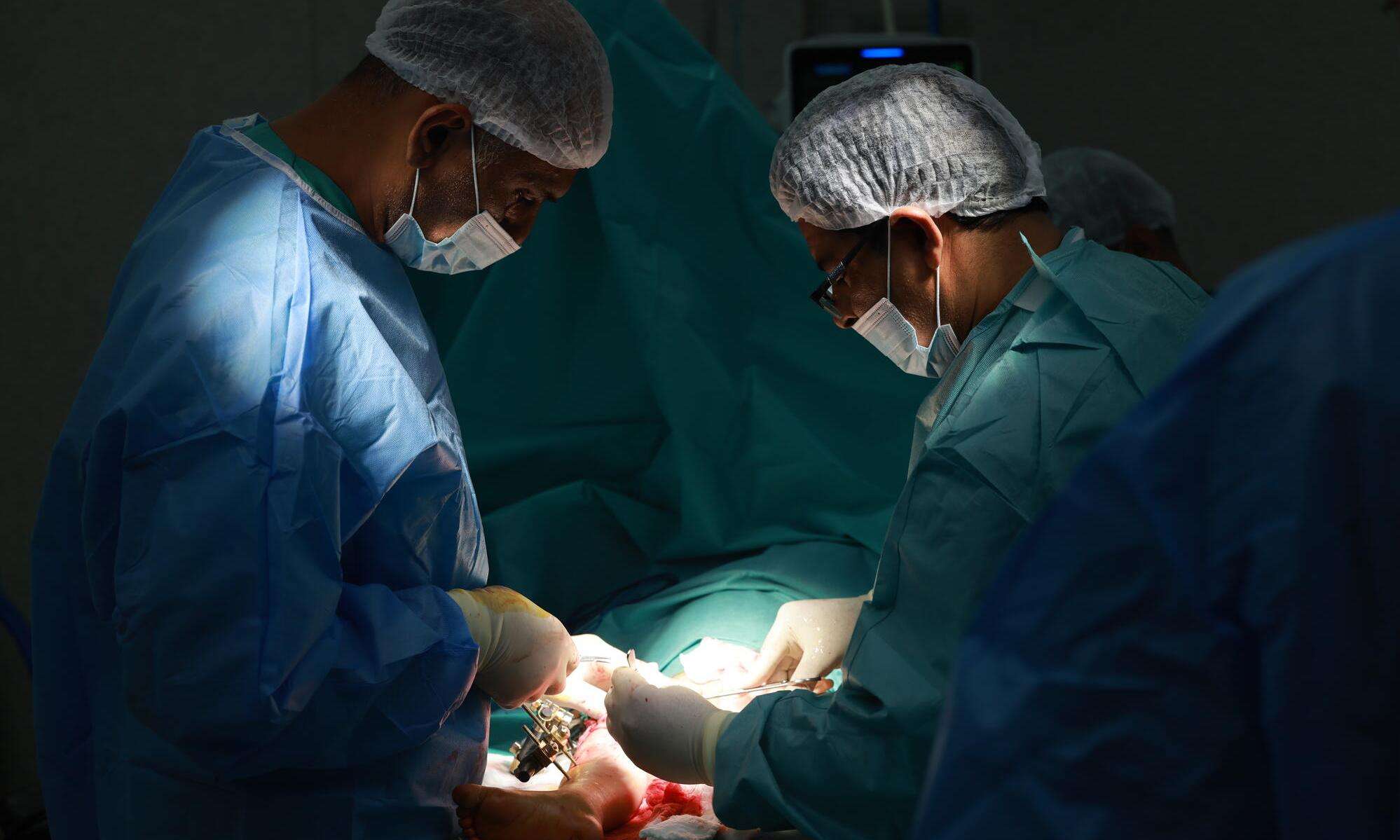NEW YORK/JERUSALEM, February 14, 2024—The international medical humanitarian organization Doctors Without Borders/Médecins Sans Frontières (MSF) strongly condemns the decision by Israeli forces to issue an evacuation order to thousands of displaced Palestinians who have sought safety from the conflict inside Nasser Hospital in Khan Younis.
The forced evacuation began on February 13 when an Israeli military bulldozer destroyed the north gate of the hospital grounds and ordered displaced people to leave. Medical staff and patients were told they may remain in the hospital with a limit of one caretaker per patient. MSF staff are still in the building and continue to treat patients amid near impossible conditions.
“People have been forced into an impossible situation: stay at Nasser Hospital against the Israeli military’s orders and become a potential target or exit the compound into an apocalyptic landscape where bombings and evacuation orders are part of daily life,” said Lisa Macheiner, MSF project coordinator in Gaza. “Hospitals should be considered safe places and shouldn’t even be evacuated in the first place.”
Prior to the evacuation of Nasser Hospital, medical staff, patients, and displaced people found themselves trapped inside the compound with very little access to essential supplies following weeks of heavy fighting. Many people who were wounded by the intense bombing in Khan Younis were also unable to reach the hospital for emergency care. According to information available to MSF teams, in the past days at least five people have been killed and ten others wounded after shots were fired directly at the hospital.
“People ask us ‘Where is it safe? Where should we go?’ but there is no answer to that, and it really leads to a feeling of despair,” Macheiner said. “People don't know what to do anymore. They feel unsafe and terrified about what is going to happen next."
Most of the displaced people in Nasser Hospital have now left and thousands of Gazans once again find themselves with nowhere to go. They cannot move back to the largely destroyed northern part of Gaza, and they aren’t safe in Rafah in the south, where Israeli forces have carried out airstrikes and have announced plans for an extensive ground offensive.
Since the war in Gaza began, MSF medical teams and patients have been forced to evacuate nine different health care facilities in the Gaza Strip after coming under fire from tanks, artillery, fighter jets, snipers, and ground troops, or being subject to evacuation orders. Medical staff and patients have been arrested, abused, and killed. Providing health care and scaling up lifesaving assistance is impossible because of the intensity of Israel’s bombings and shelling, as well as intense fighting.
An immediate and sustained ceasefire is critical to spare the lives of civilians, allow adequate and vital access to food and other basic supplies, and re-establish the health care system on which the survival of the people of Gaza depends. Additionally, warring parties must always respect and allow unhindered access to medical facilities and their surroundings, as well as protect medical staff and patients.




